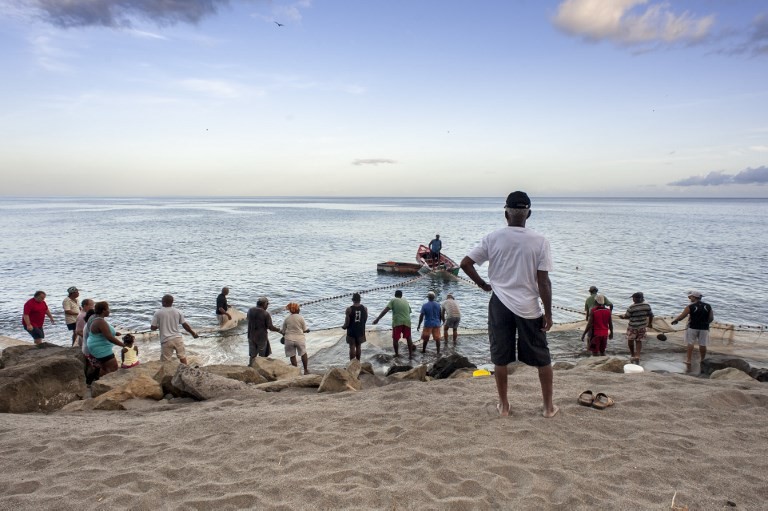Popular Reads
Top Results
Can't find what you're looking for?
View all search resultsPopular Reads
Top Results
Can't find what you're looking for?
View all search resultsCaribbean to test greenhouse-gas linked ocean acidity
Change text size
Gift Premium Articles
to Anyone
T
ourism and fishery-dependent Caribbean nations plan to test the acidity of the Caribbean Sea as a result of increased absorption of greenhouse gases, a senior regional official said Friday.
The International Atomic Energy Agency "will assist" with the project, said Milton Haughton, Executive Director of the Caribbean Regional Fisheries Mechanism.
"I am very positive that we will have things going by next year," he told AFP in Barbados where Caribbean agriculture ministers are holding their annual meeting.
Haughton said the Caribbean would also be establishing laboratories and training personnel to conduct future testing.
Scientists already believe that the increased acidity is caused by the sea's absorption of carbon emissions.
Read also: Fisheries nations to decide fate of declining bigeye tuna
"In more recent times scientists have realized that the absorption of carbon dioxide in the ocean is actually causing serious, serious problems in the ocean itself. Basically, the seawater is becoming more and more acidic and that is not good for the living marine organisms," Haughton said.
He added that acidic and increasingly warm seas were causing coral bleaching and dissolving the carbonates that shellfish require to make their shells.
"The fact is that for many of our countries, our fisheries are based on the health of the coral reefs," Haughton said.
Avoiding global climate chaos will require a major transformation of society and the world economy that is "unprecedented in scale," the United Nations said Monday.
It warned that the world must become "carbon neutral" by 2050 to have at least a 50/50 chance of keeping global warming below 1.5 C.











